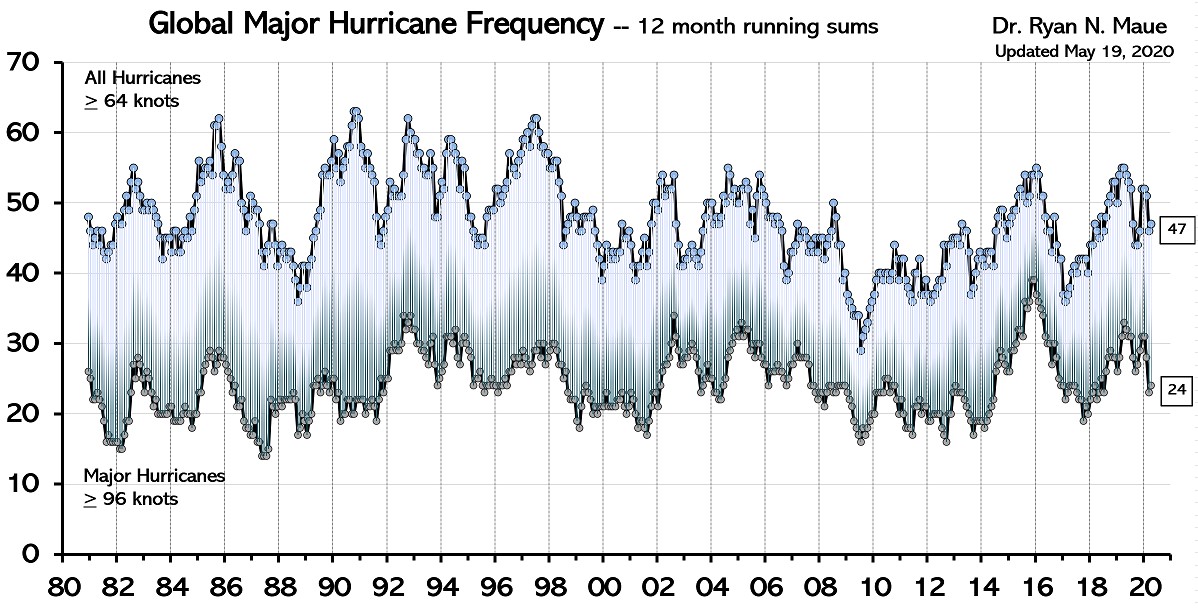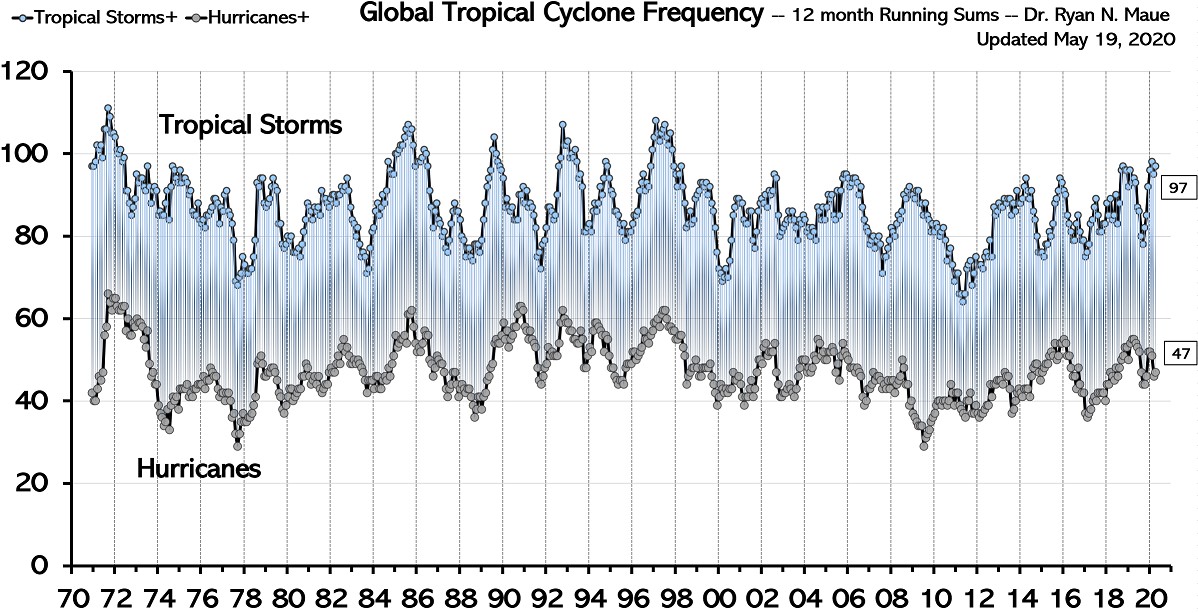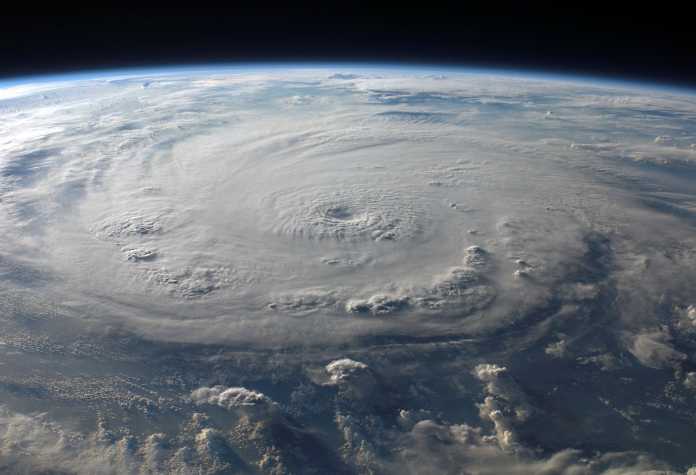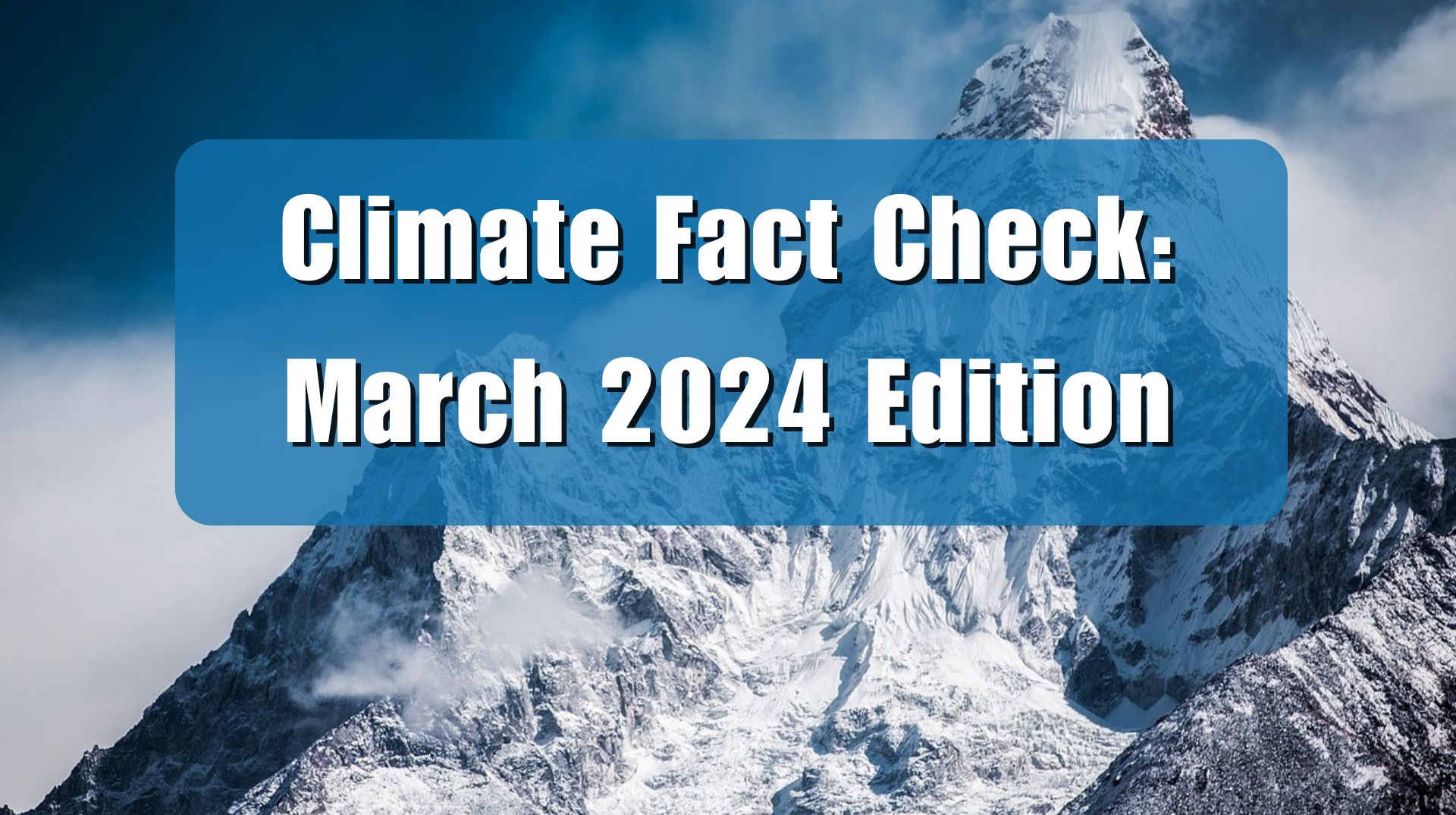The media are breathlessly touting a cheap new “study” falsely asserting climate change is causing an increase in strong hurricanes. In reality, the study relies on deception, unethical data manipulation, and aggressive misrepresentation of quite normal short-term trends to support its false claim.
The study, published by government-employed and government-funded researchers whose jobs and income depend on perpetuation of the alarmist Climate Delusion, has been reported – without any critical examination – by the New York Times, Washington Post, The Weather Channel, and others. The Environmental Defense Fund is even using the new study to raise money for itself.
The headline for the Washington Post article tells us what the alarmists are peddling in this new study: “The strongest, most dangerous hurricanes are now far more likely because of climate change, study shows.” The truth, as shown by objective scientific facts, is quite different.
The study’s authors report that an examination of tropical storms that formed between 1979 and 2017 indicates that after the first half of the 39-year time period, the chance of a given tropical storm growing to become a major hurricane (category 3 or higher) rose by 8 percent in each of the latter two decades.
As an initial matter, the authors are dubiously claiming that merely 20 years of a minor variation in hurricane numbers is sufficient to prove a substantial long-term trend and a definitive link to climate change as the causal factor. This is a preposterous claim to make over such a short period. For example, objective data – as shown in the graph below (see climatlas.com/tropical/global_running_ace.png) – show that over a 25-year period from 1992 through 2014, the frequency of hurricanes declined significantly and the frequency of major hurricanes did not increase at all. This was also during a period of global warming. Why is that 25-year period irrelevant when it is so similar in time and length to the authors’ cherry-picked 29-year period? The fact is, there will always be natural and largely random variation in the frequency of hurricanes, tornadoes, floods, droughts, etc., within periods of just a few decades.

Second, the data show essentially no change in the frequency of major hurricanes since the early 1990s. Any claim of more frequent recent hurricanes requires cherry-picking the abnormally quiet 1980s as the baseline for comparison rather than the past 30 years, during which there has been no trend. The fact that the 1980s were quieter than the 1990s is largely r relevant to the assertion that global warming is currently causing an increase in strong hurricanes. To the contrary, the lack of any increase during the past 30 years is much more relevant.
Third, and perhaps most importantly, the authors and their media sock-puppets bury the fact that the authors are reporting on the percentage of tropical storms that become major hurricanes rather than the raw number of major hurricanes. Objective data – as shown in the chart below (see climatlas.com/tropical/frequency_12months.png), show that the number of tropical storms has been declining throughout the time period of the authors’ study. So, the authors and the media can technically claim that the percentage of tropical storms that become major hurricanes is growing, even while there is no increase in the overall number major hurricanes. The percentage of tropical storms that become major hurricanes is largely irrelevant if the overall number of major hurricanes stays the same. If anything, the new study simply illustrates that fewer tropical storms are forming, which would largely be seen as a beneficial climate development.

Fourth and finally, media outlets like the Washington Post even misrepresent the misleading and cherry-picked conclusions of the authors’ study. As noted, the authors note a very minor increase in the percentage of tropical storms that become hurricanes, even while the overall frequency of major hurricanes has not increased during the past 30 years. Compare that to the Washington Post’s headline assertion that “The strongest, most dangerous hurricanes are now far more likely.” Strong hurricanes are not more likely at all, let alone “far” more likely.
The new study, and its accompanying media coverage, represent a perfect example of the horse-dung sensationalism that climate alarmists tell us is “settled science.” The only settled science is that alarmists will go to incredible lengths to manipulate and misrepresent objective scientific facts for the cause of promoting their alarmist Climate Delusion.

















Every “prediction” exposed, every catastrophy fails to occur as the alleged death hour passes unknown and unnoticed, data manipulation is a comon feature in the dreaded “climate armageddon” and anything not contributing is ignored. That’s why despite dozens of offers to stage a televised, college level, logical debate on the issue and claims has been refused by climate alarmists!
If I had dependable facts that could prove beneficial to any real crisis I would JUMP at the opportunity to prove my claims on a national scale! It would save time and money needed to rectify any real issue. The alarmists choose to continue to seek political, financial, and social power for their own benefit and a 3rd world wasteland for the rest of us! EVERY leftist scheme is intended toward those unseemly ends!
James, I had the same initial reaction as reflected in this essay and my response was to go to the same figures by Ryan Maue that you include in this article. Then I noted that Dr. Maue was quoted in these press released essentially agreeing with their conclusions. Perhaps Maue was misquoted?
No surprise. A NASA replay of anthropogenic global warming hysteria probably for many of the same reasons mentioned in the article. One need look no further than monthly weather forecasts, or at the 10 day forecast of hurricane tracks, to remind us about what we still do not know about the Earth’s natural climate system.
I think all the science types and their fear supporting media should be forced to take a review of statistical methods and inference.
Without being kept tightly reigned, the predictions would be evaluated over a decade and then real cherry picking could run rampant.
After 55 years in Florida we take everything as it comes. We take our usual hazards list out to check off canned foods and Armageddon packs of milk, generator and chain saw gas, grill gas and extra phone batteries. Then you watch the storm tracks from the Florida State University EOAS Department.
As a geoscience person I am in the Astronaut Schmitt camp of denial. The earth systems are changing and we can only live accordingly. Time and scale of events seem to confound journalists.
Thank you for your comments. Martin, I have not seen a Ryan Maue quote on the NASA study. Regardless, I believe the data speak for themselves.
Excellent piece! The “problem” in all of this was articulated by Henry Rosovsky who warned that we should “Never underestimate the difficulty of changing false beliefs by facts.” Climate realists need to find a way to stem the tide of environmental propaganda that has become so deeply ingrained in our collective frame of reference.
Well written. I think that the Times Newspaper (UK) was parroting that study. It is awfully disappointing, in my view, that the media have the moral audacity to amplify the deceptive claims of the climate-alarmist gang. Also, could you look into this other event that the media is hyperventilating over: Bangladesh has suffered a terrible flood recently, which is being blamed, of course, on sea-level rise.
[…] https://climaterealism.com/2020/05/highly-touted-alarmist-hurricane-study-sets-new-low-for-misleadin… […]